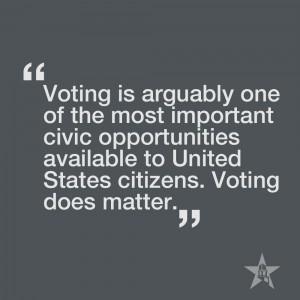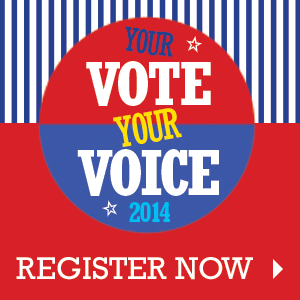Election season has become a monotonous time that typically has lacked the interest of many college students. But why? Why do students fail to exercise this Constitutional right as a United States citizen? Maybe it’s because students don’t think it affects them? Or perhaps they think their voice won’t be heard? Either way, when voting time comes, students remain unengaged and uninformed.
A statewide survey released by the California Voter Foundation (CVF) found that 23% of unregistered voters say they’re too busy to vote. While two-thirds of those surveyed noted that they didn’t turn out to vote because they believed that elections are controlled by special interest groups. In addition, the foundation found that 76% of nonvoters have no more than a high school diploma.
 Based on a 2012 survey by the U.S. Census Bureau, young adults have been found to vote more often in Presidential elections than in congressional election years. Voting rates have been historically low, especially between the ages of 18 and 24, since 1964. However, within recent years, voting-turnout rates among young adults have seen a dramatic increase. It appears that students are often drawn to particular parties based on single issues or interests. For example many individuals, and not solely students, are attracted to parties that have issues on their agenda such as climate change, the economy and social welfare, and bioethics.
Based on a 2012 survey by the U.S. Census Bureau, young adults have been found to vote more often in Presidential elections than in congressional election years. Voting rates have been historically low, especially between the ages of 18 and 24, since 1964. However, within recent years, voting-turnout rates among young adults have seen a dramatic increase. It appears that students are often drawn to particular parties based on single issues or interests. For example many individuals, and not solely students, are attracted to parties that have issues on their agenda such as climate change, the economy and social welfare, and bioethics.
Yet despite these daunting facts, voting is arguably one of the most important civic opportunities available to United States citizens. Voting does matter. Not just in presidential elections, but in local and state elections. Elected individuals represent the interests of the people. Our country was formed on the premise that we were to have a government “for the people [and] by the people.” We have a civic responsibility to exercise this right. You have a voice. You have a vote.
Alexander Buska, a senior political science major encourages students: “Vote local. Elected officials only respond to those who vote. State and town officials will be much more interested in what you have to say, and better able to accurately represent your point of view. Look at how they came out to Houghton for the ribbon cutting ceremony of the Kerr-Pegula Athletic Complex – they are plenty interested in what is going on.”
Moreover, these decisions and legislations made at the local, state, and federal level have a major impact on our lives. When asked, “Why don’t you vote?” responses included: “I’ll care when I pay my own bills,” or “I’ll register [to vote] eventually when I settle down.” The problem with waiting is

that your vote counts now. Voting on elected officials affects not just the present, but the future. Your voice matters. Your vote matters, and it matters now.
So when is your next opportunity to vote? Midterm elections are November 4. You can pick up registration forms at your local county elections office, post office, library, DMV, or print out a registration form online at your state and local board of elections website. Also, be sure to request an Absentee Ballot. This can be requested by state for midterm elections at www.yourvoteyourvoice.org.

